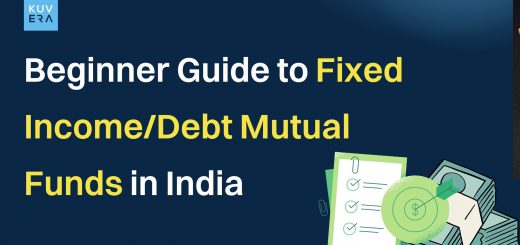As we navigate the complexities of retirement, many of us face the challenge of ensuring financial stability during our golden years. One financial tool that has gained prominence in recent years is the Reverse Mortgage. In this comprehensive guide, we will delve into what reverse mortgages are, their popularity in India, their advantages and disadvantages, and the taxation and legal aspects associated with them.
Understanding Reverse Mortgage
Reverse Mortgage is a financial product designed to provide senior citizens with a regular income stream by utilizing the equity in their homes. Unlike a traditional home loan, where you pay your lender, in a reverse mortgage, the lender pays you. Essentially, it allows homeowners aged 60 and above to convert part of their home equity into cash without selling the property or vacating it.
Popularity of Reverse Mortgage in India
While Reverse Mortgages have been available in India for over a decade, they have yet to gain widespread popularity. The concept of using one’s home as collateral for a loan can be intimidating for many. However, with increasing awareness and a growing aging population, the popularity of reverse mortgages is gradually on the rise.
Advantages of Reverse Mortgage
- Financial Independence: Reverse Mortgages provide a regular source of income, allowing retirees to maintain their lifestyle, meet medical expenses, or fulfill their travel aspirations.
- No Repayment Obligation: Borrowers are not required to make monthly repayments as long as they continue to reside in the property, providing financial relief during retirement.
- Retain Ownership: Homeowners retain ownership and can continue living in their homes without any disruption.
- Flexible Payout Options: Borrowers can choose between receiving a lump sum, periodic payments, or a combination of both based on their financial needs.
Disadvantages of Reverse Mortgage
- Reduced Inheritance: The loan amount, including interest, is repaid from the sale proceeds of the property after the borrower’s demise. This may reduce the inheritance left for heirs.
- Interest Accumulation: As interest accrues over time, the loan amount can grow substantially, potentially eroding the equity in the property.
- Age and Property Eligibility: Not all senior citizens qualify for reverse mortgages, and only certain types of properties are eligible for this financial product.
- Limited Market Penetration: The concept of reverse mortgages is not well-understood, leading to a limited customer base.
Taxation and Legalities of Reverse Mortgage
- Tax Benefits: The income received from a reverse mortgage is considered a loan and is, therefore, not taxable. Additionally, the interest paid on a reverse mortgage is also exempt from taxation.
- Legal Documentation: To safeguard the interests of both borrowers and lenders, a legal agreement is executed, detailing the terms and conditions of the reverse mortgage.
- Insurance Requirement: Lenders often require borrowers to maintain an insurance policy on the mortgaged property to protect against unforeseen events.
How to Avail Reverse Mortgage in India
To avail a reverse mortgage in India, follow these steps:
- Eligibility Check: Ensure that you meet the age requirement (typically 60 years and above) and that your property is eligible for a reverse mortgage.
- Choose a Lender: Select a financial institution or bank that offers reverse mortgage products.
- Application: Submit an application to the chosen lender, providing all necessary documents and property details.
- Appraisal: The lender will assess the property’s value and determine the loan amount you are eligible for.
- Loan Agreement: Review and sign the loan agreement, which outlines the terms and conditions of the reverse mortgage.
- Disbursement: Once the loan is approved, the lender will disburse the funds based on your chosen payout option.
- Enjoy Regular Income: You will receive regular income payments, allowing you to meet your financial needs while retaining ownership of your property.
Conclusion
In conclusion, a reverse mortgage can be a valuable financial tool for senior citizens looking to enhance their financial security during retirement. While it offers numerous advantages, including financial independence and flexible payout options, it also comes with disadvantages, such as reduced inheritance and interest accumulation.
The popularity of reverse mortgages is gradually growing in India, but it is essential for potential borrowers to fully understand the legalities and taxation aspects associated with this financial product. Consulting with a financial advisor can provide valuable insights and help individuals make informed decisions about whether a reverse mortgage is the right choice for their retirement planning.
As our society continues to age, reverse mortgages may become an increasingly important part of retirement planning, offering a pathway to financial freedom and peace of mind during one’s golden years.
Interested in how we think about the markets?
Read more: Zen And The Art Of Investing
Watch here: Investing through various economic and market cycles
Start investing through a platform that brings goal planning and investing to your fingertips. Visit kuvera.in to discover Direct Plans and Fixed Deposits and start investing today.











